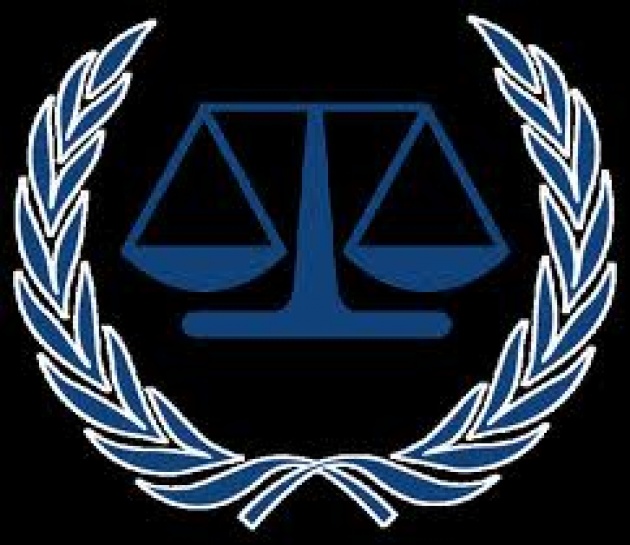
Judgment, critical assessment, and courage to face the truth are necessary to make constructive societal changes to further human rights and justice when confronting international crimes. Diplomatically Incorrect is privileged to present Dragan Petrovic (Facebook profile name: Dragan Peterson), a Bosnian, who has contributed previously as a guest writer. Dragan’s critique, “Education as an Initiator of the International Criminal Law Integration,” is written in English, followed by the Bosnian language translation.
If we ask the question "What influences the formation of support of ICC from individual national communities?" there is a large number of different responses, i.e. conditions that determine the movement and intensity of this process. In contemporary scientific literature, many of these conditions are specified and analyzed in detail, and they form a very coherent and systematic whole which is becoming increasingly situated, not only in the consciousness and practice of lawyers, sociologists, etc. but also in the minds of humanity. However, accepting certain scientific analyzes that are related to the interpretation and perception of the role of ICC and international crimes by the public of certain national societies is not the only important requirement that gives the green light to the formation of a more extensive and rational conviction of crime by one social community, but there are also state governments that facilitate or obstruct the whole process. Aggravation does not only occur in the sphere of the political public appearance, but also in the political strategy or the agenda relating to detailed managing of social relations. One such social relation that affects the creation of ICC’s support is the education system which represents a type of social interaction. An education system is directly related to the establishment of objective attitudes, critical and self-critical human awareness within public opinion of a certain society. Since the education system is often an emanation of interest of political authorities, there is clear emphasis on the essence of their relationship and interdependence.
Many countries in the world use a system of education to achieve a relativization of crime, and then to subsequently impede the possible process of facing crimes. An example of such a national state strategy is the modus of dealing with the genocide against the Armenians in the Ottoman Empire in 1915 by the Turkish Government. The official position of the Turkish government indicates a denial of the crime and consequently forms a national strategy with regard to the interpretation of the Ottoman history. In addition, the expression of this attitude is reflected directly in the unwillingness to accept ICC’s criminal judicial authority as an international criminal court. The rejection of the own past and inconsistent facing with international crimes is in part the result of fear of possible charges for genocide by the ICC, which is why the total effect is the impending of the process of strengthening the role of ICC in today’s global society. Turkey is not the only example, such an approach in the interpretation of history is occurring in many countries of the world. Similarly, the same case applies to the United States, where the same method is used to solve the issue of war crimes committed by individuals of the U.S. military; such is especially the issue of disenfranchised American citizens of Japanese descent in 1942.
The level of awareness of a certain national community represents a condition for developing social requirements to deal with the crimes, which in ultima linea means that inadequate coping with the crimes and the past in the early state of education results in the ambiguity in the highest stage of human maturity towards this sociological phenomenon. The lack of social pressure directed towards the state authorities slows down the development of the political consciousness towards its progressive way of thinking regarding the overall process of dealing with international crimes and global criminal law integrations. In "Antisemitismus Gesellschaftstheorie: Die Frankfurter Schule im amerikanischen Exil" Eva-Maria Ziege gives a detailed description of the sociological research of the Frankfurt School with regard to the degree of anti-Semitism which manifests itself in the minds of U.S. citizens who were part of the research depending on their level of education. Therefore this work, among others, has consistently stated the importance of the information deficit that occurs gradually during the early school years, as well as the wrong methodological approach to the interpretation and analysis of existing information pertaining to the question of anti-Semitism and similar.
I believe that the results of this research can also be implemented in the global aspect in terms of the methodological approach to the analysis of the human perception of the role of ICC in today's society and from the perspective of a certain national community. Such an approach would open the possibility of recognizing the elementary reason that appears as an element of the obstruction of the international criminal law integration process by the individual states of the world.
----Brought to you by Susan Sacirbey & Diplomatically Incorrect
Facebook: Become a Fan at “DIPLOMATICALLY INCORRECT” & “BOSNIA TV”
Follow on TWITTER @DiplomaticallyX
Other popular current event articles by Dragan: “Facing International Crimes Inside Balkan Societies” diplomaticallyincorrect.org/blog_post/facing-international-crimes-inside-balkan-societies/52840
More video blogging websites at Diplomatically Incorrect Channels: diplomaticallyincorrect.org/c/diplomatically-incorrect and Bosnia Channels: diplomaticallyincorrect.org/c/bosnia
Edukacija kao pokretač međunarodnih krivičnopravnih integracija

Ako bi smo postavili pitanje "Šta utiče na formiranje podrške ICC-u od strane pojedinaćnih nacionalnih zajednica?", moglo bi se vrlo lako primjetiti postojanje velikog broja razlićitih odgovora, tj. uslova koji određuju kretanje i intenzitet tog procesa. U današnjoj naučnoj literaturi mnogi od tih uslova su jako detaljno izloženi i analizirani, te formiraju jednu izuzetno koherentnu i sistematizovanu cjelinu koja se sve više situira, ne samo u svijes i praksu pravnika, sociologa, etc., nego i u um ukupnog čovječanstva. Međutim, prihvatanje određenih naučnih analiza, koje stoje u vezi sa tumačenjem i percepcijom međunarodnih zločina i uloge ICC-a od strane javnog mnijenja pojedinačnih nacionalnih društava, nije jedini važan uslov koji daje zeleno svjetlo ka formiranju jedne šire i racionalne osude zločina od strane jedne društvene zajednice, nego se tu pojavljuju i nosioci državne vlasti koji olakšavaju ili otežavaju ukupan proces. Otežavanje se ne nalazi samo u sferi javnog političkog istupanja, nego i u političkoj strategiji ili agendi koja se odnosi na detaljnije uređivanje društvenih odnosa. Jedan takav društveni odnos koji utiče na kreaciju podrške ICC-u jeste sistem edukacije, koji predstavlja tip društvene interkacije. Sistem edukacije se nalazi u direktnoj vezi sa uspostavljanjem objektivnih stavova, kritičke i samokritičke ljudske svijesti unutar javnog mnijenja pojedinačnog društva. S obzirom da je sistem edukacije, često, emanacija interesa nosioca političke vlasti, tu se jasno apostrofira suština njihovog međusobnog odnosa i međuuvjetovanosti.
Mnoge države svijeta koriste sistem edukacije kako bi se zlocin relativizirao, a zatim otežao mogući proces krivičnopravnog suočavanja. Primjer takve državne strategije je modus suočavanja sa genocidom nad Armenima u Osmanskom carstvu iz 1915 od strane turske Vlade. Zvanični stav turske Vlade ukazuje na negiranje zločina, a shodno tome se formira i državna strategija u vezi sa tumačenjem osmanske prošlosti. Ujedno, manifestacija takvog stava očituje se direktno u neprihvatanju krivičnopravnih ingerencija ICC-a kao međunarodnog krivicnog suda. Neprihvatanje sopstvene prošlosti i nedosljedno suočavanje sa međunarodnim zločinima je dijelom rezultat straha od moguće inkriminacije za genocid od strane ICC-a, zbog čega se kao ukupan efekt pojavljuje otežavanje procesa jačanja uloge ICC-a u današnjem globalnom društvu. Turska nije jedini primjer, nego se ovakav pristup tumačenja proslosti pojavljuje u mnogim državama svijeta. Naime, slično važi u slučaju Sjedinjenih Država, gdje se na isti način pristupa rješavanju pitanja ratnih zločina počinjenih od strane pojedinaca američke vojske, a posebno pitanje predstavlja problem obespravljenih američkih građana japanskog porijekla iz godine 1942.
Stepen osvješćenosti pojedinačne nacionalne zajednice predstavlja uslov pojave društvenog zahtjeva za suočavanjem sa zločinima, sto in ultima linea znači da neadekvatno suočavanje sa zločinima i prošlošću u toku ranog procesa edukacije čovjeka rezultira njegovom ambivalentnošću prema tom socioloskom fenomenu u fazi najviše ljudske zrelosti. Nedostatak društvenog pritiska usmjerenog prema nosiocima vlasti usporava razvoj političke svijesti ka njenom usmjeravanju prema progresivnim razmišljanjima u vezi sa ukupnim procesom suočavanja sa međunarodnim zločinima i globalnim krivičnopravnim integracijama. U djelu "Antisemitismus und Gesellschaftstheorie: Die Frankfurter Schule im amerikanischen Exil", Eva-Maria Ziege detaljno navodi sociološka istraživanja Frankfurtske škole u vezi sa stepenom manifestovanog antisemitizma zavisno od nivoa edukacije ispitanih gradjana Sjedinjenih Država koji su bili dio predmeta istraživanja. Stoga ovo djelo, izmedju ostalog, dosljedno navodi značaj informacijskog deficita koji se postepeno pojavljuje u toku ranog školovanja, kao i pogrešan metodološki pristup tumačenja i analize postojećih informacija koje se odnose na pitanje antisemitizma, i sl.
Smatram da rezultati ovih istraživanja mogu biti primjeni i na globalnom aspektu u pogledu metodološkog pristupa analize ljudske percepcije o ulozi ICC-a u današnjem društvu iz perspektive pojedinačne nacionalne zajednice. Ovakvim pristupom bi se otvorila mogućnost spoznaje elementarnih razloga koji se pojavljuju kao element opstrukcije procesa međunarodnih krivičnopravnih integracija od strane pojedinih država svijeta.



